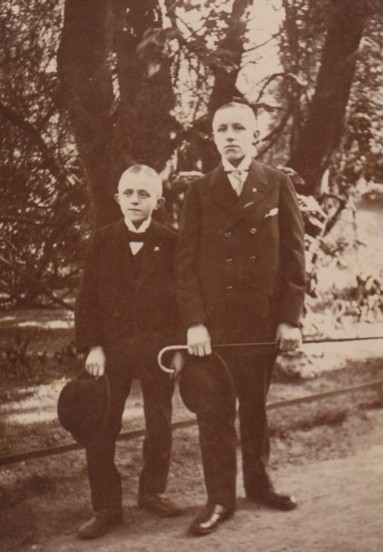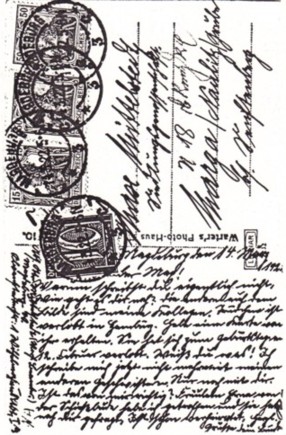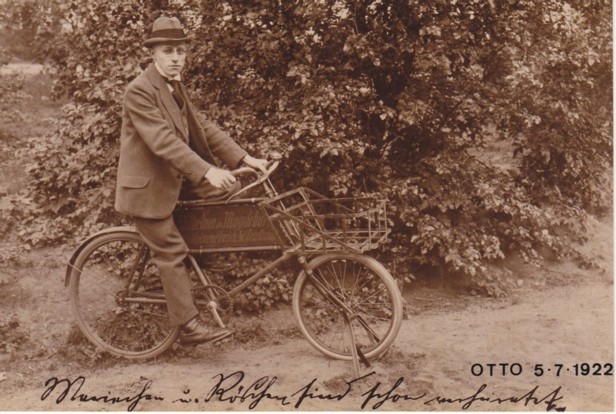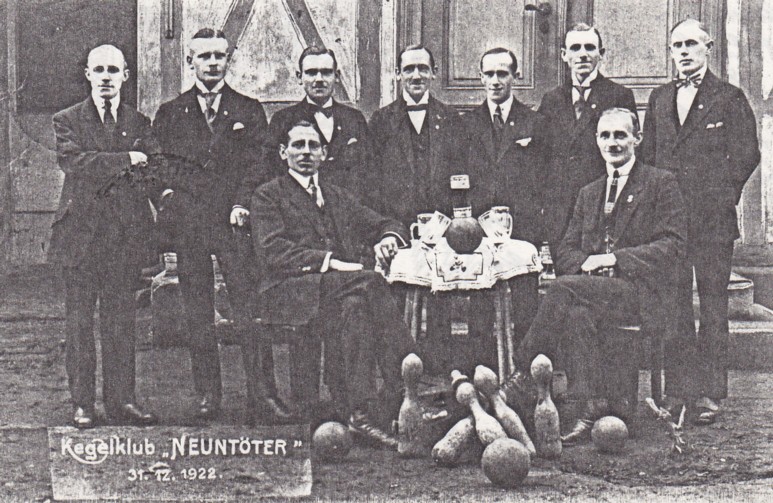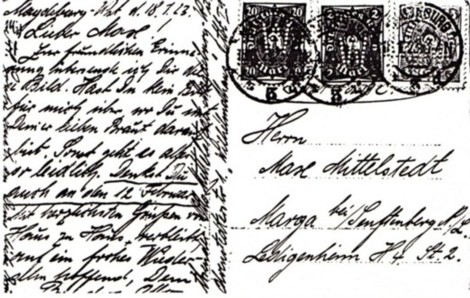OTTO MITTELSTEDT
One family member described Otto as "Taubstumm" meaning deaf-mute. Another said his hearing was OK but he had a bad speech defect.
I don't have Otto's birth or death dates, only estimates these being c.1897 - 1960s. He was born in Magdeburg and moved to
Wupperthal where he married and had one child.
Postcard from Otto (in Magdeburg), dated March 1922, to his brother Max in Senftenberg
Max Mittelstedt
Siedlungsgenossenschaft
18 ....................
Marga / Naulitz / Grube
Bz. Senftenberg
Magdeburg 14 Marz 1922
Brother Max!
Why haven't you written lately, How are you at present?
The others on the photo are my colleagues.
Trutchen is engaged. Have received a card from her. She got engaged for her birthday on 12th February.
I am now not even corresponding further with my other brothers and sisters. Only with you. Am I doing right?
Miss Erna was ......... met up with her and she asked about you, She's already a widow.
Heartfelt greetings
Your brother
Sender Otto Mittelstedt (............)
Magdeburg
.......................................................
Otto Mittelstedt on a postcard dated July 1922
The words at the bottom state "Mariechen and Rӧschen are already married."
Post card from Otto (in Magdeburg), dated January 1923, to Max
The photo shows the nine members of the bowling club of which Otto (top row, 7th) was a member. The message reads:
Mr Max Mittelstedt
Marga at Senftenberg N./L.
Ledigenheim H.4. St.2.
Magdeburg 18.1.23
Dear Max!
As a friendly reminder I send you this photo.
Don't you have a spare photo for me on which you appear with your lovely bride?
Otherwise everyone is doing alright. Also are you thinking about February 12th?
With heartfelt greetings from my house to your house and still anticipating a joyful reunion.
Your brother Otto
[Senftenberg is a town about 100km south of Berlin. "Ledigenheim" apparently refers to a building with cheap accommodation for single employees, labourers, temporary workers and soldiers. Ledigenheims were common until the 1950s near industrial areas to attract workers.]
